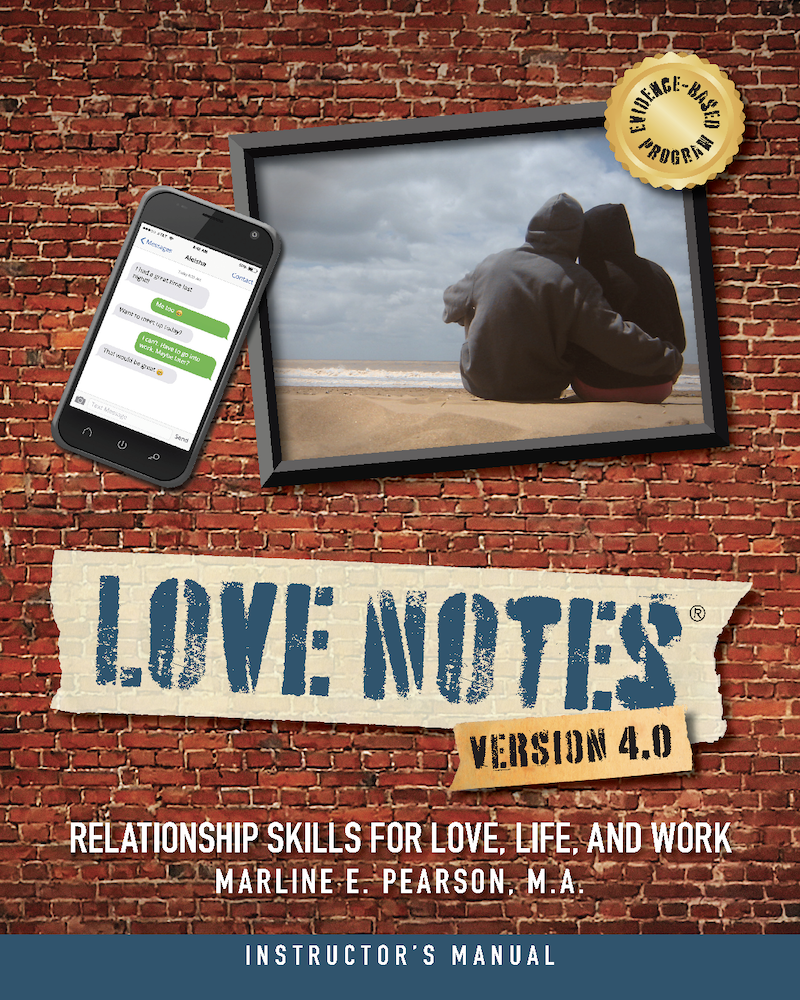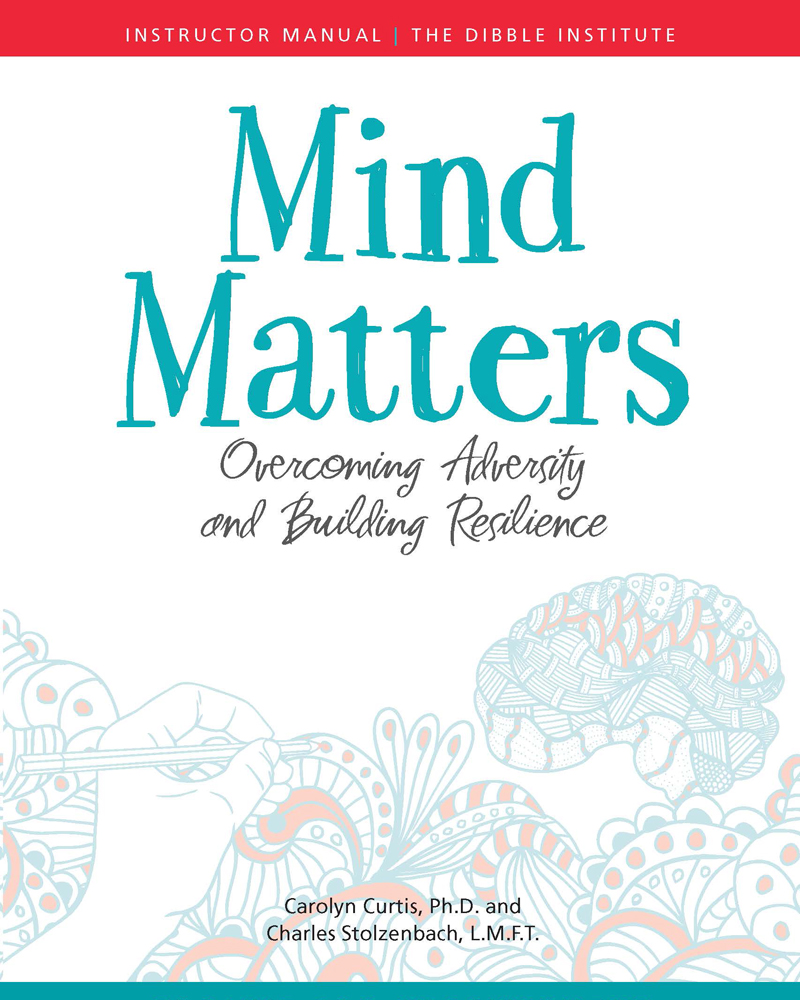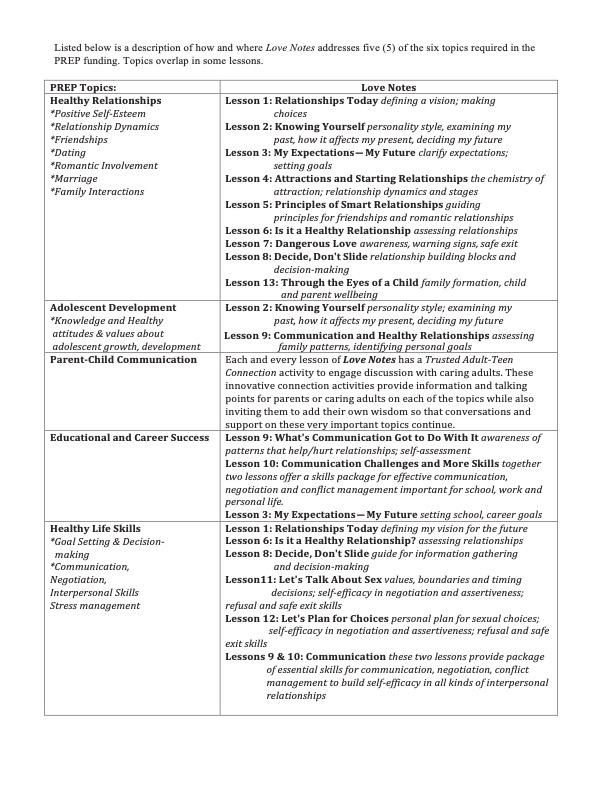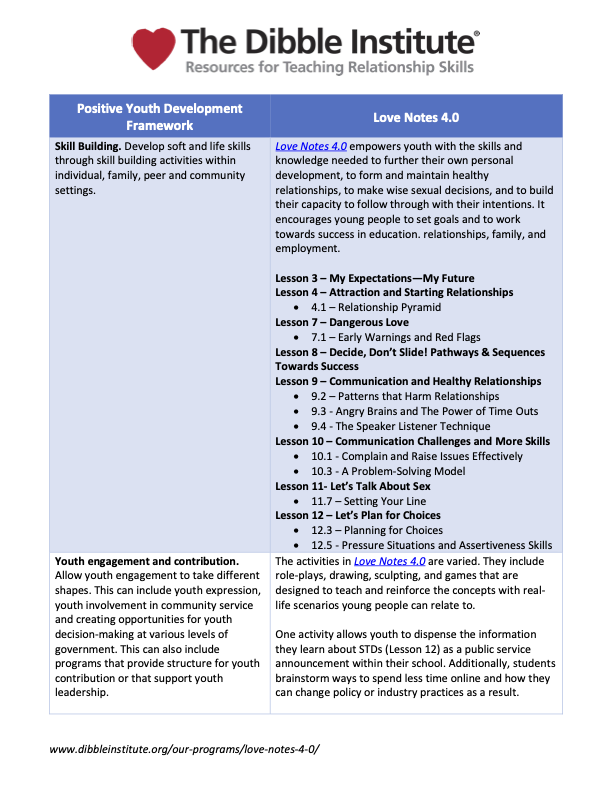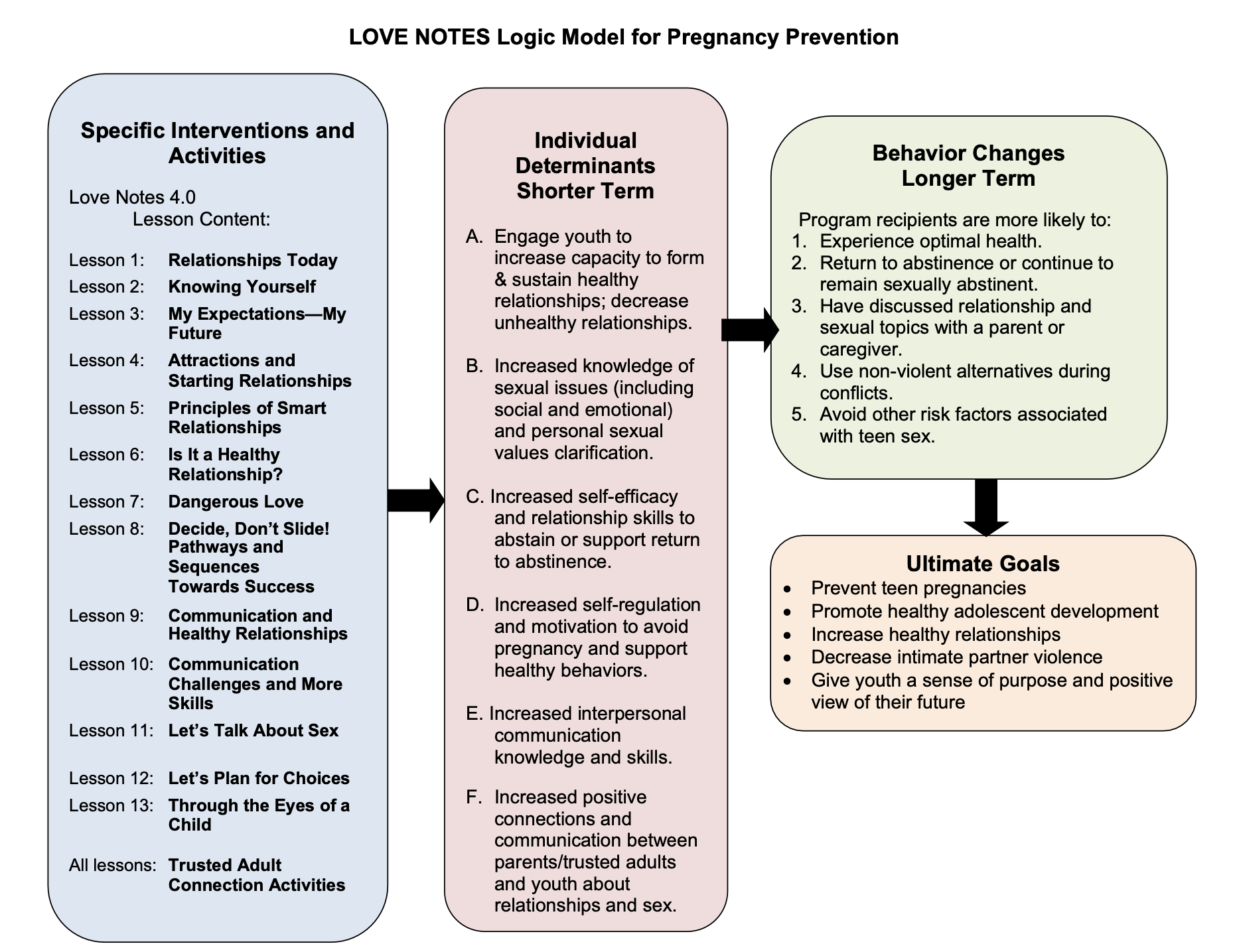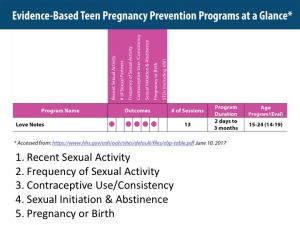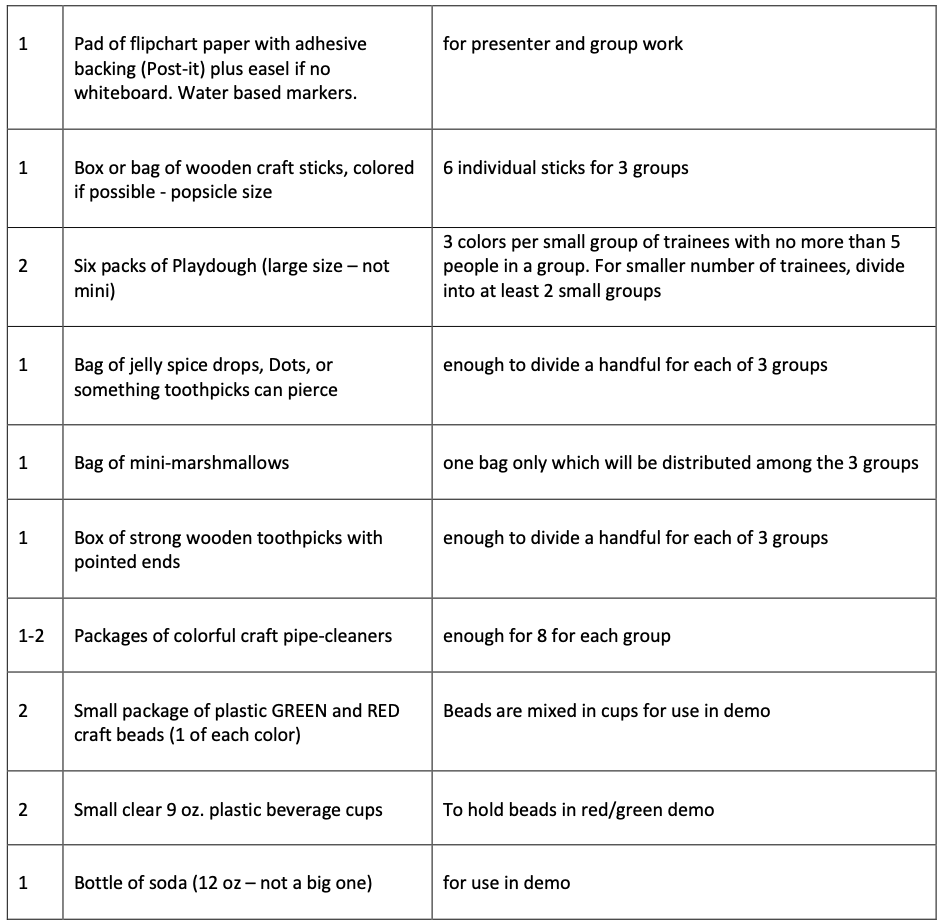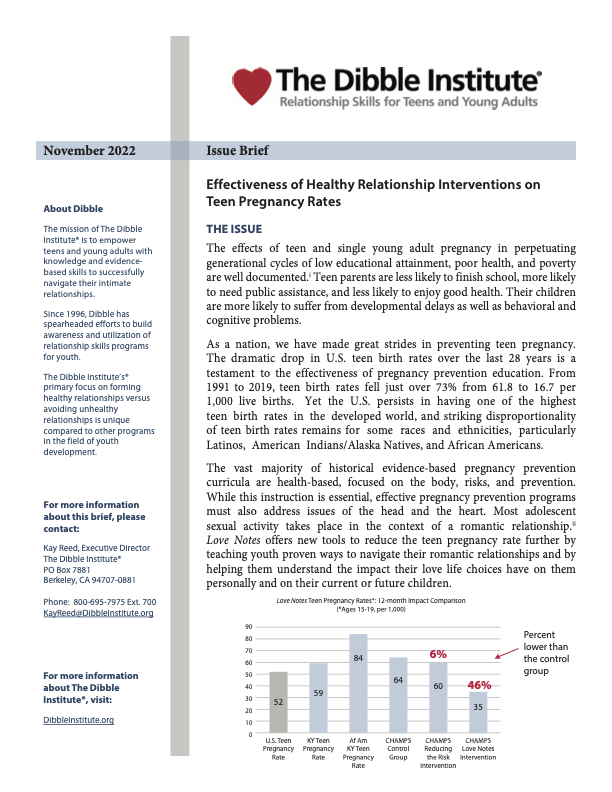Competitive Personal Responsibility Education Program (PREP) grants have been announced.
PREP Competitive Grants are due June 24, 2024. You can find the announcement and FOA here. Eligible states and territories are:
|
|
|
Using Love Notes EBP, Money Habitudes and Mind Matters will create a strong proposal that will significantly impact your youth.
- Love Notes Evidence Based Program Model is the ONLY program on the federal OAH list with five positive outcomes and no negative outcomes.
- Compared to the control group, Love Notes students were 46% less likely to become pregnant 12 months post-instruction.
- Love Notes covers five of the six adult preparation topics.
- Money Habitudes for Young Adults covers the Financial Literacy topic.
- Mind Matters covers stress management, which is part of the Healthy Life Skills topic.
- Love Notes:
- Has been successfully used to increase equity with historically under-represented and under-served youth (Hispanic, non-Hispanic black, Native American) and rural youth in a variety of settings.
- Was developed for youth ages 14 and up. (NOTE: Love Notes now contains approved guidance for adapting the content to youth in grades 6-8).
- Was updated in 2022 with the most current medical information based on feedback from the Family and Youth Services Bureau (FYSB), using CDC and YRBS data.
- Love Notes uses a Positive Youth Development approach.
- Love Notes clients gain access to our full range of fidelity tools and evaluation measures.
- Evidence-Based Program/Data
- Adult PREP Topics
- Positive Youth Development
- Logic Model
- Trauma-Informed Care
- Medical Accuracy
- Equity - Populations - Settings
- Outcomes
- Fidelity Tools
- Training Expectations
- Diversity, Equity, and Inclusion Training
- Technical Assistance
- Project Sustainability Plan
- Teaching Supply List
- Budget Plan
- Memorandum of Understanding (MOU)
- Issue Brief
Key Outcomes:
Why Money Habitudes Work:
Key Outcomes:
Love Notes was designed with two trauma-informed goals in mind:
- To directly empower youth: Help teens and young adults who have experienced childhood adversity to make meaning of their pasts by looking at the patterns they experienced to better understand how these earlier events have influenced their lives and choices. Most importantly, to support youth in defining what they want in their relationships, their present or future family, and for their life goals. Yet defining isn’t enough. It is essential to equip young people with the knowledge and skills to build self-efficacy and confidence to move towards their goals.
- To prevent of Adverse Childhood Experiences in the children these youth have or may have in the future: An important hook throughout the curriculum is how Intimate Partner Violence, unstable and turbulent relationships, and unplanned pregnancies affect children. These concepts are conveyed through upbeat and empowering activities. Vulnerable youth immediately understand the connection between family structure and outcomes for children and they long to protect to their current or eventual children. We build upon that protective, empathetic instinct. We tap their aspirations and give them a huge trove of knowledge and skills to help them move towards their aspirations.
Mind Matters: Overcoming Adversity and Building Resilience will address the trauma needs of the youth you serve.
- Mind Matters’ teaches young people proven ways to deal with stressful life experiences using innovative methods based on current research and neuroscience.
- Students experiencing ongoing stress or prior trauma often have difficulty regulating their emotional responses when facing challenges in school and work, life and relationships. As youth learn the skills and strategies in Mind Matters, they can begin to take charge of themselves and their responses to what life throws at them. Teens learn to address their physical, relational, and mental health needs.
- Mind Matters may be taught by non-clinicians in group or individual settings with teens (12 and up) to build skills that help them cope with life’s stressors. The program can be successfully implemented in health classes, home visiting settings, career and technical ed programs, parenting classes, residential group homes, corrections, staff development seminars, and more.
The Dibble Institute has developed trauma-informed teaching tips for program managers and educators. Download the tips here.
Love Notes is being successfully implemented to increase equity with historically under-represented and under-served youth including Hispanic, non-Hispanic Black, and American Indian teens as well as teens from rural areas and territories in a wide variety of settings. Below is a partial list of populations and settings where Love Notes is being used.
Check out our real life Case Studies here.
Populations
- Youth in foster care
- Youth experiencing homelessness
- Youth living with HIV/AIDS
- Victims of Human Trafficking
- Pregnant and parenting youth
- LGBTQIA2S+
- Youth in correctional settings
- Tribal youth
- Runaway youth
- Foster youth (both within the system and aging out)
- Out-of-school youth
Settings
- Workforce Development (YouthBuild/Job Corps)
- Group homes (Foster)
- Residential settings (Mental health)
- Detention centers
- Challenge academies
- Schools
- Alternative schools
- Faith-based settings
- Community agencies
Love Notes fidelity tools for great results!
The following fidelity aids and checklists are included when you purchase the Love Notes 4.0 Manual:
- Annotated slide deck to focus the instructor on key content.
- Observational fidelity tools for coaches and evaluators
- Love Notes knowledge test
- Inventory of related scales that can assess attitudinal and behavioral outcomes regarding sex, relationship quality, communication, conflict, control, violence as well as mediators.
Note: To maintain fidelity, training of your organization’s Love Notes instructors by a Dibble Training Specialist is required.
The Dibble Institute offers high-quality, ongoing professional development and training for all your project staff and facilitators to ensure successful implementation and evaluation. To assure the success of your PREP implementation, we recommend the following training protocols:
1) For clients new to Love Notes 4.0
Five day 3.5-hour per day online training or 3 full day in-person training for all instructional and project staff. Group discounts are available.
Please call Carlie Kaeppler at 800-695-7975 ext. 703 or Carlie@Dibbbleinstitute.org to obtain a training quote.
2) Clients who have been trained in a previous edition of Love Notes
One day virtual or in-person training to review new and updated content.
Please call Dr. Rachel Savasuk-Luxton at 800-695-7975 ext 705 or email Rachel@Dibbleinstitute.org to obtain a training quote.
3) Clients who have been trained in Love Notes 4.0
Please call Dr. Rachel Savasuk-Luxton at 800-695-7975 ext. 705 or email Rachel@Dibbleinstitute.org to begin a needs assessment process and development of your personalized training plan.
**Please note: If you have trainees with varied experience attending a training, your training plan will be based on those individuals who have the least experience with Love Notes.
4) Clients with TOT-Certified Love Notes Trainers on staff
1) For clients new to Mind Matters:
Five day 3.5-hour per day online training or 3 full day in-person training for all instructional and project staff.
Please call Carlie Kaeppler at 800-695-7975 ext. 703 or Carlie@Dibbbleinstitute.org to obtain a training quote.
2) Clients who have been trained in Mind Matters:
Please call Dr. Rachel Savasuk-Luxton at 800-695-7975 ext. 705 or email Rachel@Dibbleinstitute.org to begin a needs assessment process and development of your personalized training plan.
**Please note: If you have trainees with varied experience attending a training, your training plan will be based on those individuals who have the least experience with Mind Matters.
1) Money Habitudes:
Money Habitudes for Young Adults is an on-demand training for $49 per person and can be found at this link.
To help you meet the requirement for DEI training The Dibble Institute has scheduled Dr. Bryant Marks from the National Training Institute on Race & Equity at Morehouse College for a webinar. Click here to learn more about Dr. Marks and the Institute.
Dr. Marks will provide a 3 hour DEI training for Dibble clients on December 11, 2024 from 12:00 pm – 3:00 pm EST. and each second Wednesday of December thereafter.
The Dibble Institute includes two hours of complimentary technical assistance (TA) with every training. Additional TA at $95 an hour may be scheduled based on your needs.
We can help you craft a clear and realistic recruitment, retention, training, and TA plan to build capacity on topics pertinent to implementation of your PREP project and priorities listed in this NOFO for facilitator throughout the grant.
Based on your needs, TA topics could include:
- Developing a post-training plan for successful facilitation
- Handling sensitive topics
- Trauma informed training techniques
- Improving facilitation skills
- Creating effective recruitment and retention plans
- Successful implementation models in schools and community organizations
- Identifying participant referral resources
The Dibble Institute has scheduled Dr. Bryant Marks from the National Training Institute on Race & Equity at Morehouse College for a webinar. Click here to learn more about Dr. Marks and the Institute.
Dr. Marks will provide a 3-hour DEI training for Dibble clients on December 11, 2024 from 12:00 pm – 3:00 pm EST. and each second Wednesday of December through the course of your grant.
The cost is $45 per participant. We will open the registration for this training in October after the grants are announced.
The Dibble Institute is pleased to consult with you as you write your grant and after it has been awarded strategies to sustain your activities over time. We have demonstrated over our nine years of implementing a federal grant, how to bring relationship education cost-effectively to large numbers of youth by using existing community systems.
We can also help you develop your sustainability plans by identifying alternative funding streams that support relationship education beyond your grant. Our Dibble Team is ready to research opportunities on behalf of your organization, curating a personalized list of funding. Your Funding Opportunity Report will provide all the relevant information needed to choose new funding opportunities, build relationships with the funder, and begin the application process when funds are made available. For $99, you can purchase a funding opportunity report that includes:
- A relevant list of opportunities for your organization at Federal, State, and Local Levels
- Description of each grant or other funding type
- Relevant dates, deadlines, and information to apply
- A comprehensive list of Dibble resources to support your application
- A one-on-one meeting with Dibble staff to review the report and talk about next steps
Please email Kay Reed, Executive Director, at kayreed @ DibbleInstitute.org to set up a time to consult.
Teaching Supply List for Love Notes EBP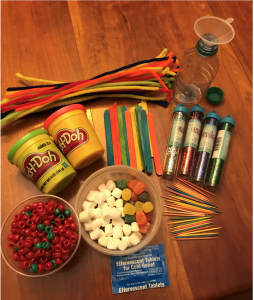
These items are necessary when teaching the curriculum. Many of the supplies can be reused. Craft items may be found at JoAnne’s, Michael’s, or other craft store.
Assumptions: 15 participants divided into 3 groups of 5. Scale the supplies accordingly with larger or smaller groups.
We ask applicants to complete this Materials, Technical Assistance, and Training Budget because we want to make sure that you have everything you need in your budget to assure success.
Please return to Aaron Larson, grant coordinator, (Aaron @ DibbleInstitute.org). He will contact you to complete your MOU with The Dibble Institute.
The Dibble Institute is pleased to sign an MOU with you as part of your application.
To help us understand your plans, please send an email Aaron @ DibbleInstitute.org with the following information:
- Numbers of students you plan to serve each year of the grant.
- Your signed Training and Materials Budget




